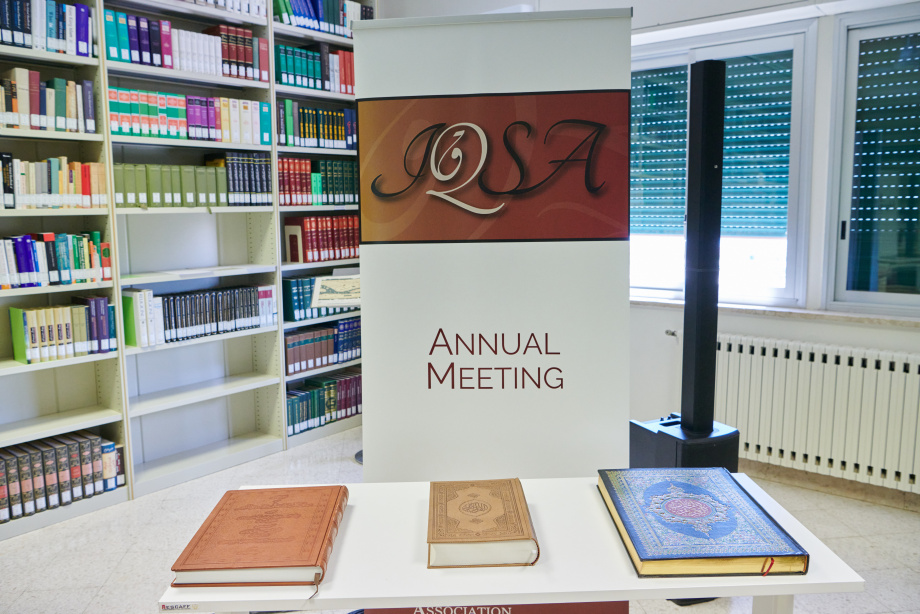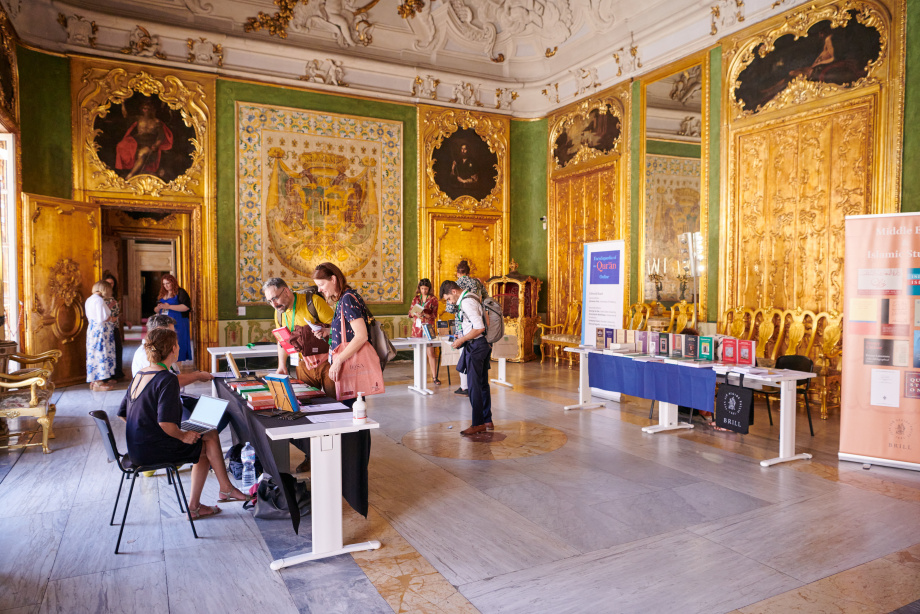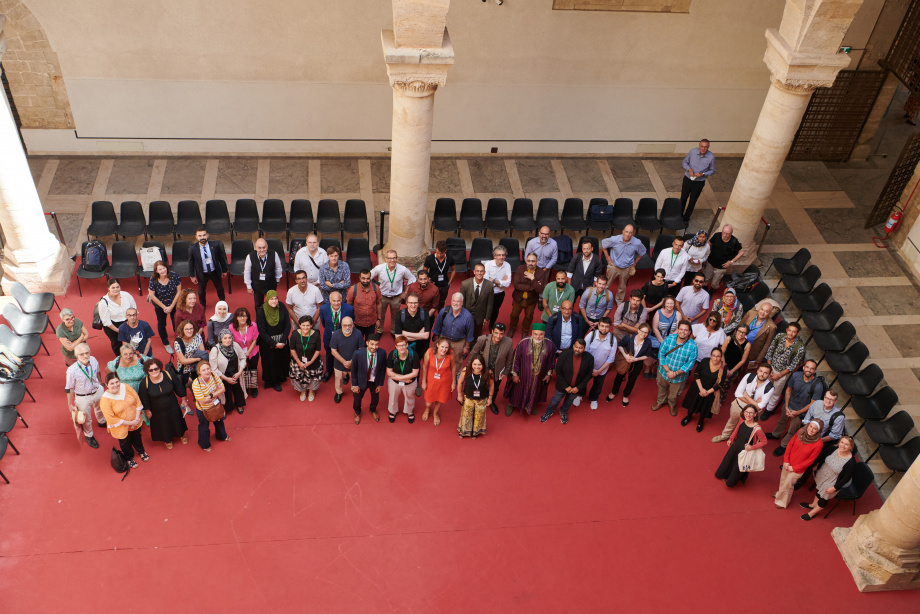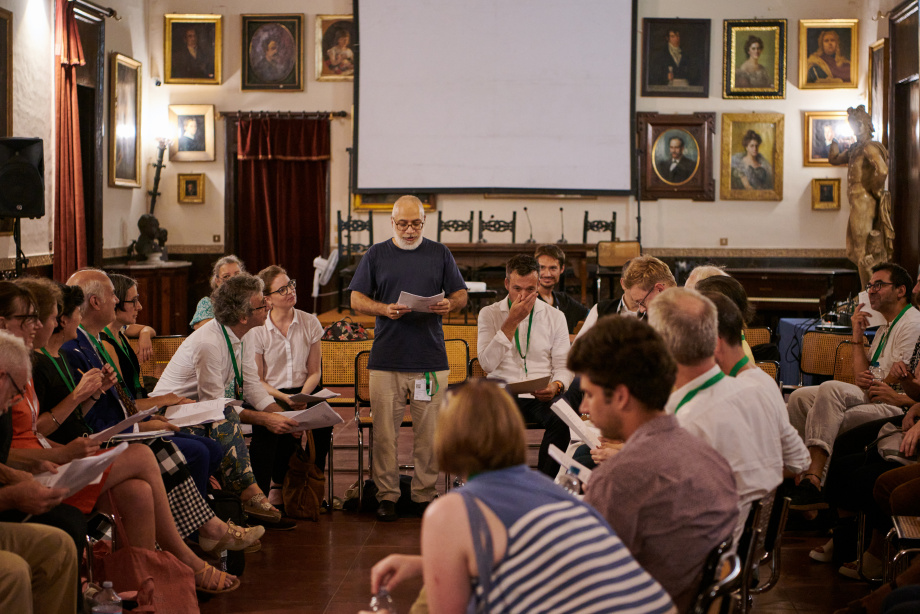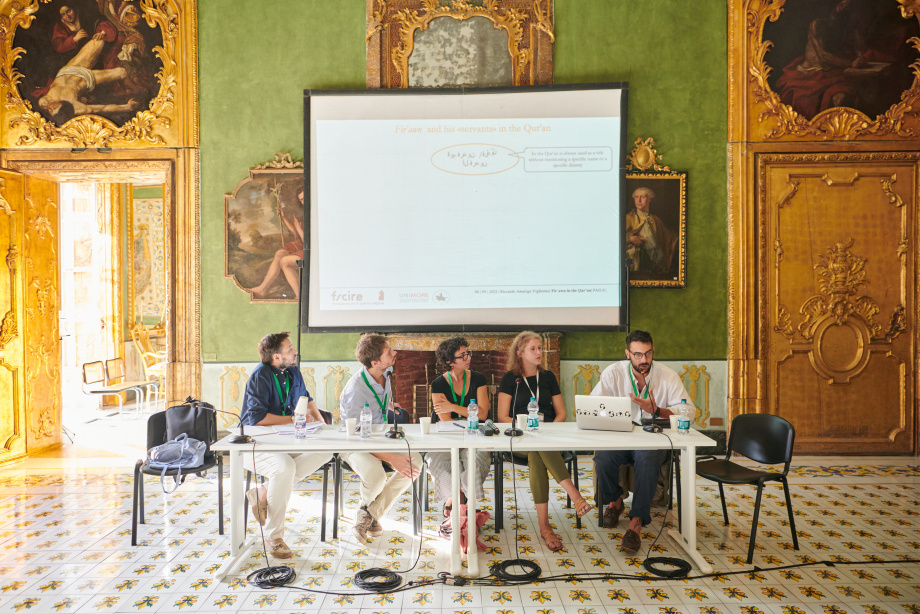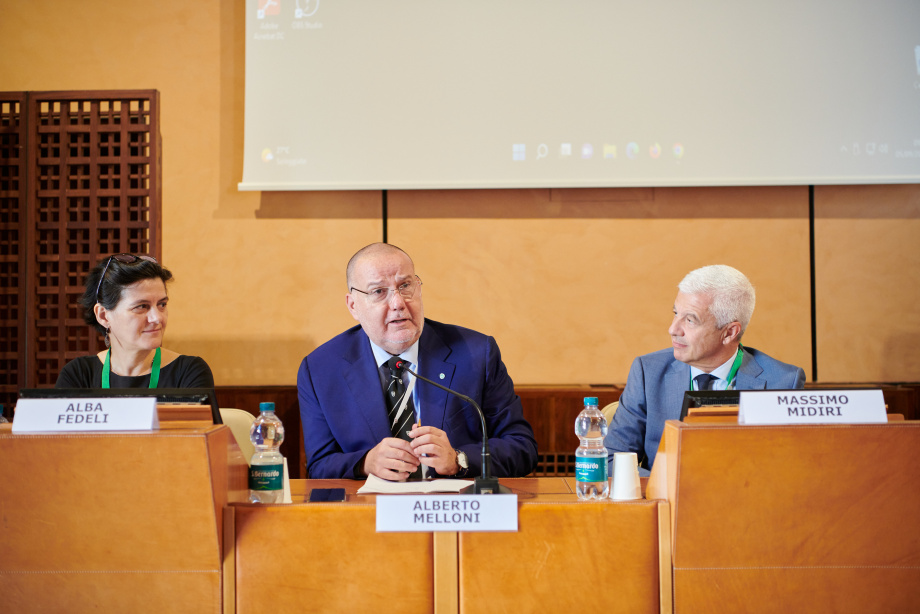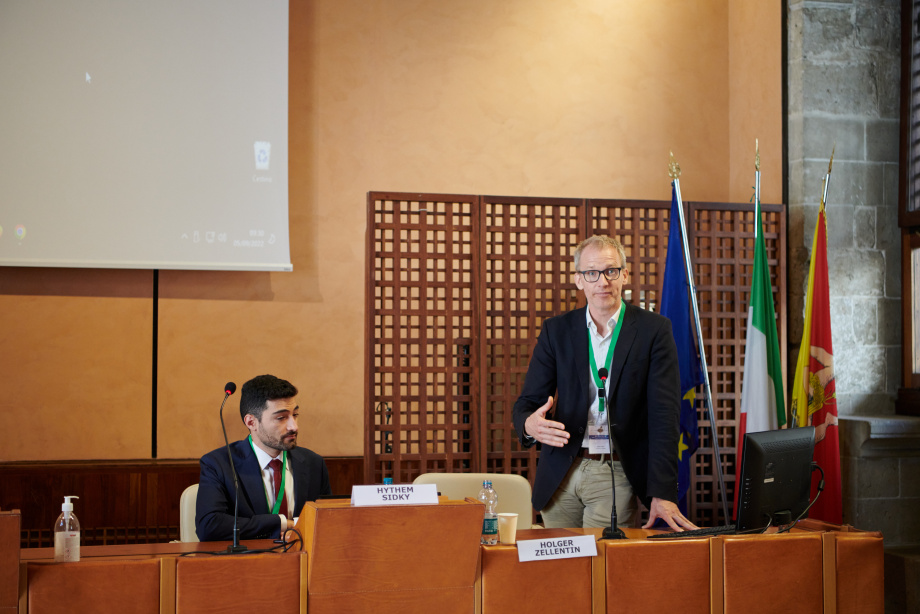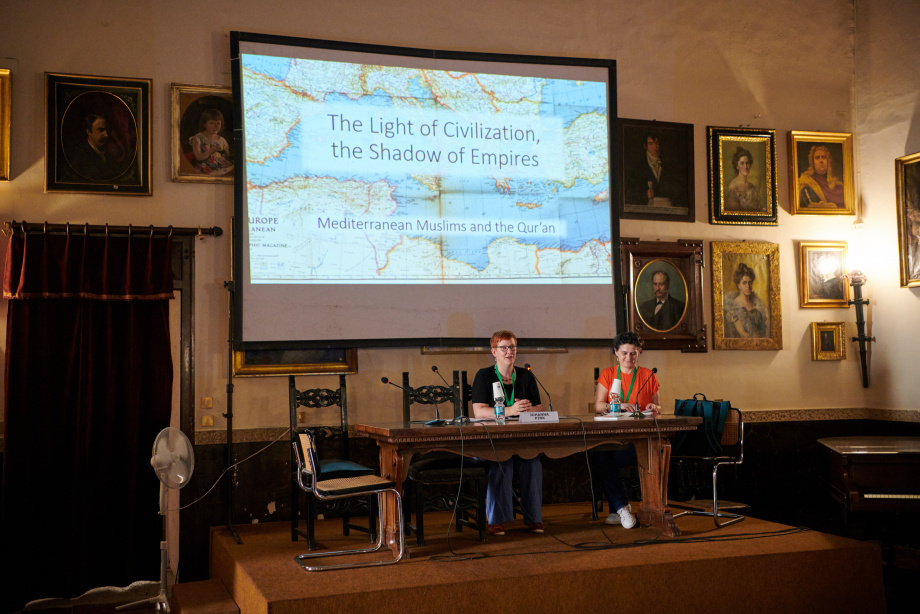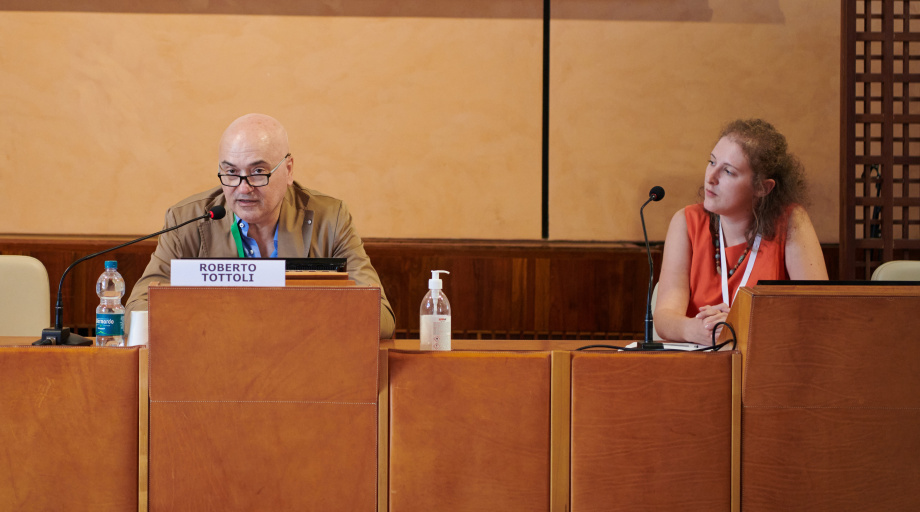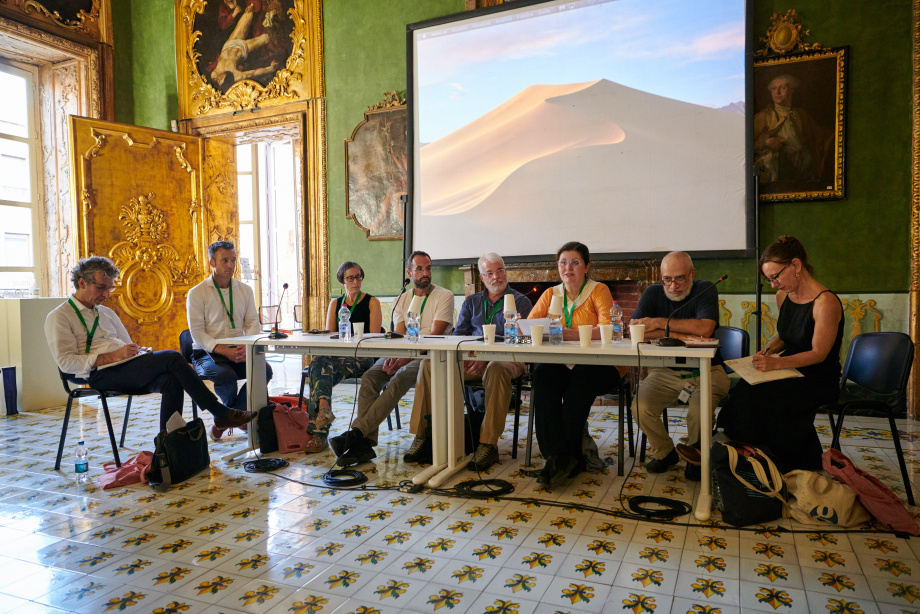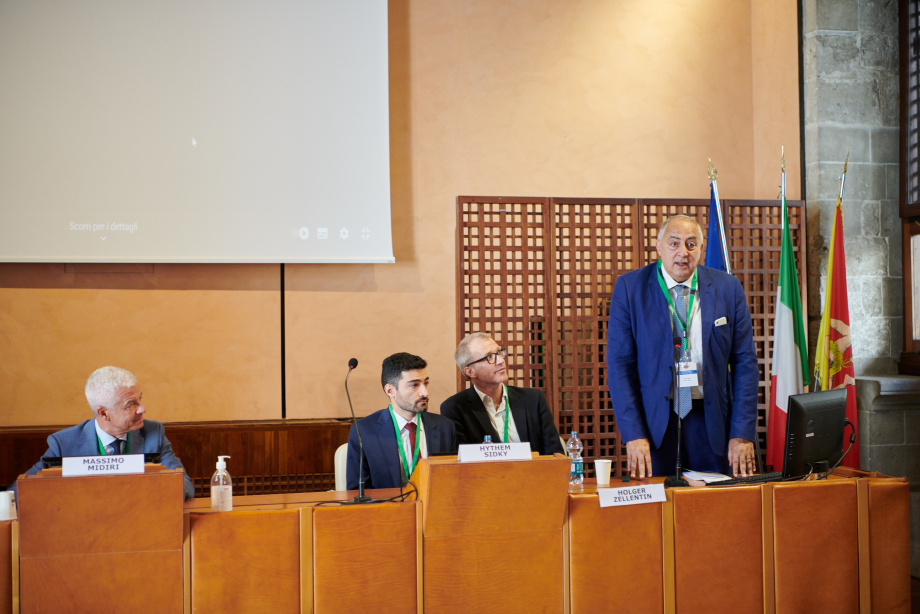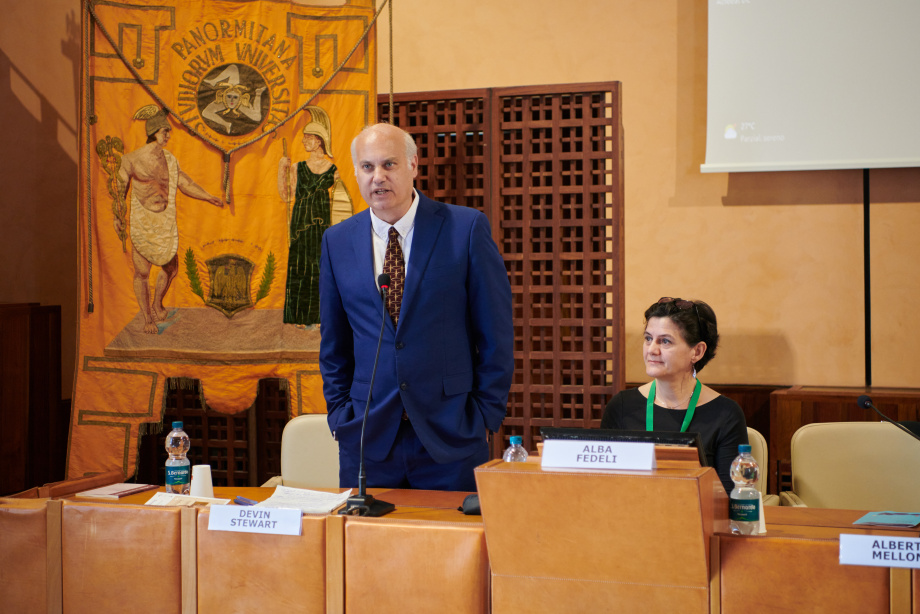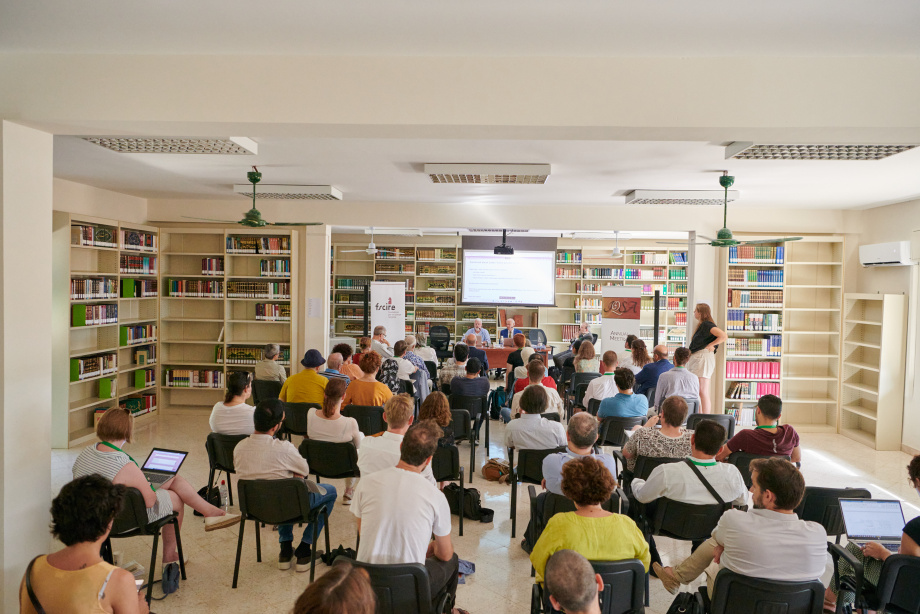IQSA Annual Meeting
L'International Qur’anic Studies Association (IQSA) è la prima società accademica dedicata allo studio del Corano, che organizza conferenze in tutto il mondo e pubblica ricerche e studi all’avanguardia.
a comunità di IQSA e i suoi partner comprendono studiosi, studenti, case editrici e membri del pubblico.
Abbiamo ospitato l’Annual Meeting di IQSA nella nostra sede di Palermo, dal 5 al 7 settembre 2022.
Molte personalità di rilievo hanno contribuito alle iniziative che hanno animato le tre giornate:
I saluti istituzionali di:
Alberto Melloni – Segretario di FSCIRE
Massimo Midiri – Rettore dell’Università di Palermo
Alba Fedeli e Devin Stewart – Co-direttori dell’Annual Meeting IQSA di Palermo
Hythem Sidky e Holger Zellentin – Direttore esecutivo e Presidente del Consiglio direttivo di IQSA
Roberto Lagalla – Sindaco di Palermo
Le tre lectio magistralis:
Qur’anic Studies Today: Composing Past Approaches and Building New Perspectives, di Roberto Tottoli (Università degli Studi di Napoli “L’Orientale”)
The Light of Civilization, the Shadow of Empires: Mediterranean Muslims and the Qur’an under British and French Colonial Rule, di Johanna Pink (Università di Friburgo)
Presidential Address: A Historian Looks at the Qur’an, di Fred Donner (University of Chicago)
L’evento organizzato per l’occasione:
Lettura scenica di “Surah Yusuf, A Translation in 5 Acts”, a cura di Shawkat M. Toorawa, Yale University, New Haven, CT.
In merito, il professor Toorawa ha dichiarato:
Solo dopo aver iniziato a studiare l’arabo ho cominciato a cogliere davvero l’arte dei ritmi e delle rime del Corano. È stato allora che mi sono reso conto di quanto queste qualità acustiche e sonore siano poco valorizzate nelle traduzioni. Ho deciso, con umiltà ma anche con una certa audacia, di contribuire a colmare questa lacuna. La mia prima traduzione è stata della Sûrat al-Insân (Q. 76), che avevo sentito recitare nella Moschea del Profeta alla fine degli anni Ottanta. Ho poi provato a tradurre alcune sure brevi, pubblicando queste versioni nel Journal of Qur’anic Studies affinché i colleghi che insegnano il Corano potessero disporre di traduzioni attente al suono. Continuando a tradurre negli anni, mi sono accorto di scegliere principalmente sure recitate dai musulmani di tutto il mondo nelle preghiere quotidiane (salât), nel mese di Ramadan o in suppliche (du‘â) e formule di ricordo (dhikr) largamente attestate.
Una sura che ho sempre desiderato tradurre è la Sûrat Yûsuf (Q. 12), non solo per i suoi ritmi e le sue rime, ma per le sue peculiari caratteristiche retoriche. Ho deciso di tentare un approccio innovativo, forse addirittura radicale: una traduzione in forma di copione teatrale. Ho testato l’idea con tre cari amici e colleghi: Joe Lowry, Devin Stewart e Nora Schmid. Dopo la loro rassicurazione che “funzionava”, ho proposto a IQSA di organizzare la “Lettura scenica di Surah Yusuf, una traduzione in 5 atti”.
I miei obiettivi erano tre. Primo, dimostrare – attraverso la performance orale – alcune delle caratteristiche retoriche più evidenti e “cinematografiche” di questa sura, tra cui le indicazioni di scena, le ambientazioni, i tagli e i dialoghi drammatici. Secondo, mostrare – come fatto anche in precedenti traduzioni – che la rima può essere efficacemente integrata nella resa del Corano, preservando al contempo l’economia narrativa. Terzo, offrire a tutti i presenti l’opportunità di interagire con il Corano in un modo completamente nuovo e corporeo – come studiosi, oratori, ascoltatori, traduttori e interpreti. Ho coinvolto 14 colleghi per leggere i diversi ruoli, tutti insieme, simultaneamente. Interagire in questo modo con la sura, insieme a colleghi e amici che stimo, è stata un’esperienza unica e impagabile. Sono immensamente grato a Francesca Badini e Alba Fedeli per aver reso tutto ciò possibile e di grande successo.
A giudicare dalla reazione dei “lettori-attori” e del pubblico nella spettacolare Sala dei Musici di Palazzo Alliata di Villafranca, questo “esperimento” ha funzionato. Interagendo con la sura in questo modo, abbiamo tutti approfondito la conoscenza del genere, della struttura narrativa, delle scelte retoriche e drammatiche, delle ambiguità e anticipazioni, e della forza del racconto. Personalmente, ho acquisito una nuova comprensione di ciò che rende il racconto di questa sura ahsan al-qasas (v. 3), un’espressione che significa “la storia migliore”, ma che ora penso anche come “la storia raccontata nel modo migliore”.
Va detto che non sono stato il primo a tradurre la sura in forma drammatica. Nel 1994, James Morris ha pubblicato il purtroppo poco noto articolo “Dramatizing the Sura of Joseph: An Introduction to the Islamic Humanities”, nel Journal of Turkish Studies (Festschrift for Annemarie Schimmel), 18 (1994): 201–224. Nonostante la Sûrat Yûsuf abbia ricevuto un’attenzione accademica considerevole, spero che grazie agli sforzi miei e di Morris si possa giungere a una comprensione più profonda di questo “racconto bellissimo”.
© Mooz Studio Photo
